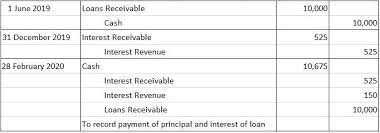Fixed Deposits (FDs) are one of the most popular investment options for individuals who want to earn a steady income without risk. With the advent of technology, these calculators have become a helpful tool for investors to calculate the interest on their FD investments. However, before using a Calculator for FD, it is essential to consider several factors to get accurate results. Let us discuss the factors one need to consider while employing anFD calculator to calculate the interest on your fixed deposit.
Interest Rate: The first and foremost factor to consider is the interest rate offered by the bank or financial institution on the fixed deposit. The interest rate may vary from bank to bank and depending on the tenure of the FD. A higher interest rate will result in a higher return on investment.
Tenure: The tenure of the fixed deposit is the duration for which one invests money. The interest rate on the FD may vary depending on the tenure. In general, interest rates rise with a longer tenure. It is essential to select the tenure of the FD based on their financial goals and liquidity requirements.
Compounding Frequency: Compounding frequency refers to the frequency at which the interest is compounded on the fixed deposit. The interest can be compounded quarterly, semi-annually, annually, or monthly. The higher the compounding frequency, the higher the return on one’s investment. Selecting the compounding frequency based on financial goals and liquidity requirements is essential.
Investment Amount: Investment amount refers to the initial principal amount that an individual invests in a financial instrument, such as stocks, mutual funds, fixed deposits, bonds, and other investment options. The investment amount is the foundation of an individual’s investment portfolio and determines the returns they can expect to earn over time.
When investing, the investment amount plays a crucial role in determining the overall returns on the investment. The higher the investment amount, the higher the potential returns. However, investing a high amount also involves a higher risk as the investment becomes more significant.
Considering the investment amount based on financial goals, risk appetite, and liquidity requirements is essential. For instance, if you have short-term financial goals, you may need more than investing in long-term investment options. Similarly, investing a high amount in high-risk investment options may not be suitable if you have a low-risk appetite.
Investors must also diversify their investment portfolio and spread their investment amount across multiple options to reduce the overall risk. By diversifying their investment portfolio, investors can balance the risk and returns on their investments and achieve their financial goals over time.
Taxation: The interest earned on the fixed deposit is taxable as per the income tax laws. The tax rate may vary depending on the tax slab of the investor. Considering the tax implications while calculating the interest on fixed deposit investment is essential.
Premature Withdrawal: Premature withdrawal refers to withdrawing the FD before maturity. Most banks and financial institutions charge a penalty for premature withdrawal. Considering the penalty charges while calculating the interest on FD investment is essential.
Conclusion
In conclusion, the5paisa FD calculator is a helpful tool for calculating the interest on fixed deposit investments. However, it is essential to consider the above mentioned factors to get accurate results. Considering these factors, one can make an informed decision while investing in fixed deposits and achieve your financial goals.

















